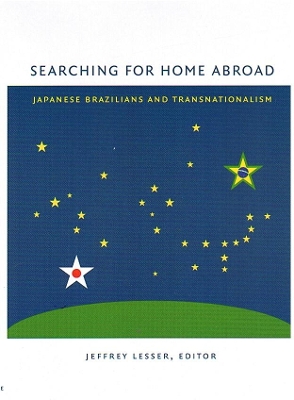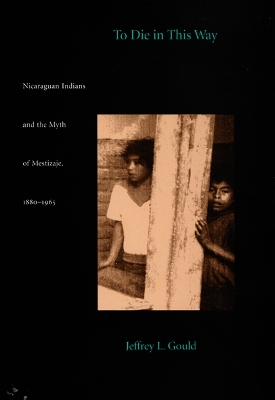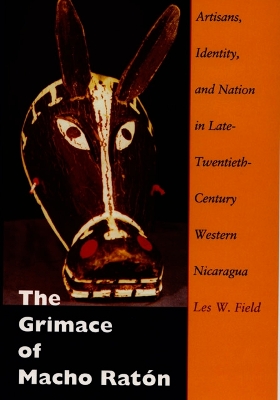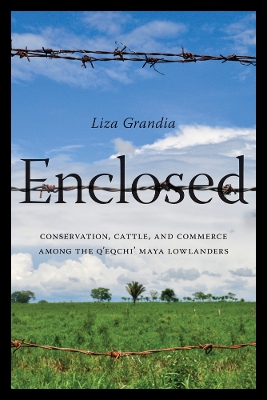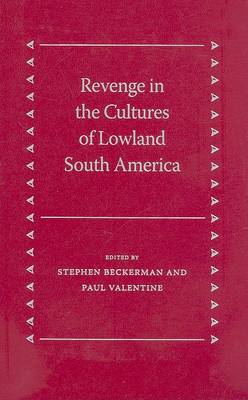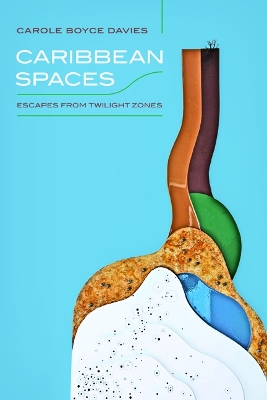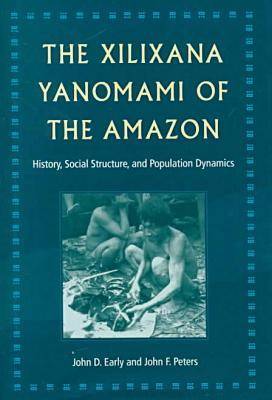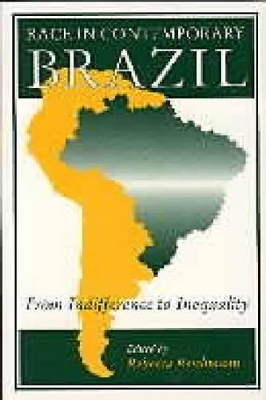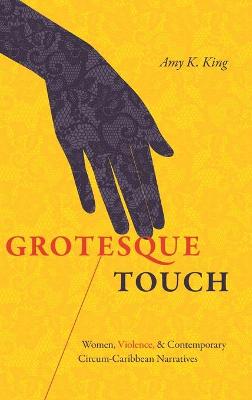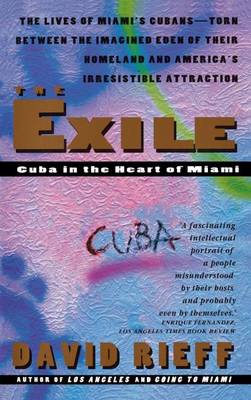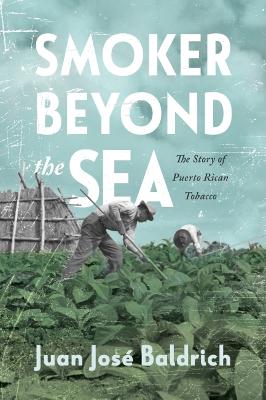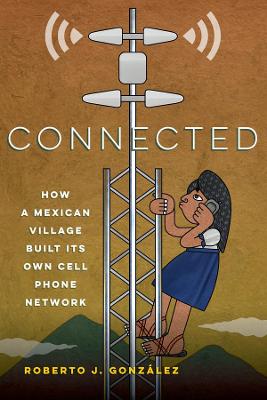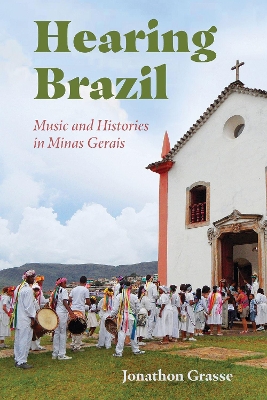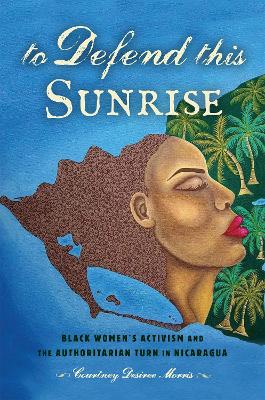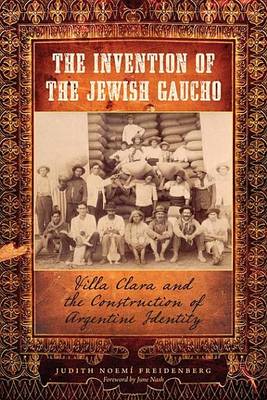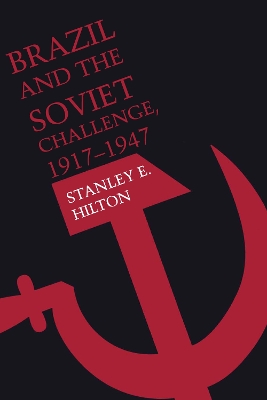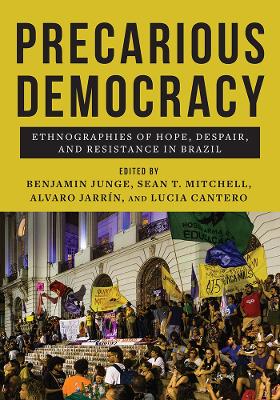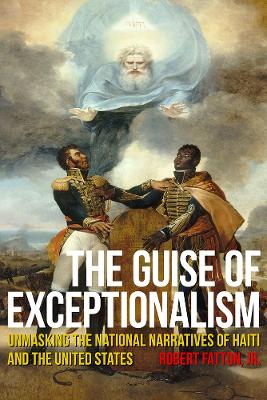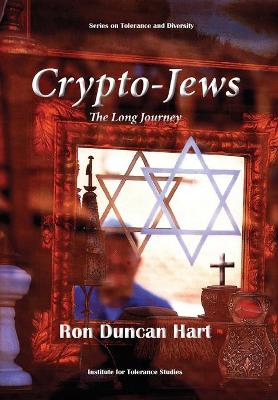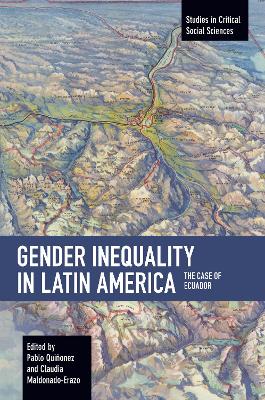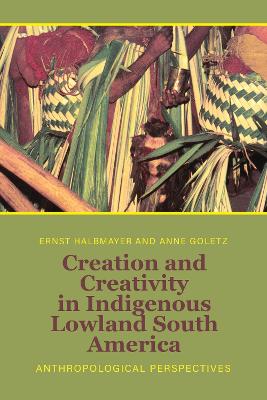Searching for Home Abroad
During the first half of the twentieth century, Japanese immigrants entered Brazil by the tens of thousands. In more recent decades that flow has been reversed: more than 200,000 Japanese-Brazilians and their families have relocated to Japan. Examining these significant but rarely studied transnational movements and the experiences of Japanese-Brazilians, the essays in Searching for Home Abroad rethink complex issues of ethnicity and national identity. The contributors—who represent a number of...
Challenging the widely held belief that Nicaragua has been ethnically homogeneous since the nineteenth century, To Die in This Way reveals the continued existence and importance of an officially “forgotten” indigenous culture. Jeffrey L. Gould argues that mestizaje—a cultural homogeneity that has been hailed as a cornerstone of Nicaraguan national identity—involved a decades-long process of myth building.Through interviews with indigenous peoples and records of the elite discourse that suppresse...
In this creative ethnography Les W. Field challenges a post-Sandinista national conception of identity, one that threatens to constrict the future of subaltern Nicaraguans. Drawing on the works and words of artisans and artisanas, Indians, and mestizos, Field critiques the national ideology of ethnic homogeneity and analyzes the new forms of social movement that have distinguished late-twentieth-century Nicaragua. As a framework for these analytic discussions, Field uses the colonial-era play El...
This impassioned and rigorous analysis of the territorial plight of the Q'eqchi Maya of Guatemala highlights an urgent problem for indigenous communities around the world - repeated displacement from their lands. Liza Grandia uses the tools of ethnography, history, cartography, and ecology to explore the recurring enclosures of Guatemala's second largest indigenous group, who number a million strong. Having lost most of their highland territory to foreign coffee planters at the end of the 19th c...
Revenge in the Cultures of Lowland South America
This extraordinary ethnography is the first devoted to the study of revenge. The contributors describe this social phenomenon in fourteen tribal societies, comparing its violent manifestations as well as its more idiosyncratic forms. Blood revenge at spear point is common in certain regions of aboriginal lowland South America; in other areas revenge is implicated in seemingly unrelated areas of daily life, from child naming to explanations for sickness.Revenge is a universal human motive that re...
Drawing on both personal experience and critical theory, Carole Boyce Davies illuminates the dynamic complexity of Caribbean culture and traces its migratory patterns throughout the Americas. Both a memoir and a scholarly study, Caribbean Spaces: Escapes from Twilight Zones explores the multivalent meanings of Caribbean space and community in a cross-cultural and transdisciplinary perspective. From her childhood in Trinidad and Tobago to life and work in communities and universities in Nigeria,...
Public Loves, Private Troubles (Contemporary Issues and Methods in Indigenous Studies)
by Meghan Farley Webb
The Xilixana Yanomami, an Indian tribe of the northern Amazon Basin in Brazil, has been widely studied as the largest indigenous people to retain a traditional way of life. Breaking new ground, this book presents the most complete account available of the Yanomami before and after their encounter with the modern world.
Authoring Female Identities in Spanish and Latin American Art and Media
This edited volume places the work of Spanish and Latin American female artists in, between, and across genres, media, spaces, identities, disciplines, and worlds. Its aim is to curate a series of interconnected studies on women artists across diverse media, and to position and redefine our understanding of female authorship. This is a timely intervention both in and beyond the fields of Hispanic Studies and Film and Cultural Studies, given the continued lack of visibility and persistent inequit...
Race in Contemporary Brazil
Brazil’s traditionally agrarian economy, based initially on slave labor and later on rural labor and tenancy arrangements, established inequalities that have not diminished even with industrial development and urban growth. While fertility and infant mortality rates have dropped significantly and life expectancy has increased during the past thirty years, the gaps in mortality between rich and poor have remained constant. And among the poor of different races, including the 45 percent of Brazil’...
Water for All chronicles how Bolivians democratized water access, focusing on the Cochabamba region, the country's third largest city and most important agricultural valley. Covering the period from 1879 to 2019, Sarah T. Hines examines the conflict over control of the region's water sources, showing how communities of water users increased supply and extended distribution through collective labor and social struggle. Through analysis of a wide variety of sources from agrarian reform case record...
In this book, Amy K. King examines how violence between women in contemporary Caribbean and American texts is rooted in plantation slavery. Analyzing films, television shows, novels, short stories, poems, book covers, and paintings, King shows how contemporary media reuse salacious and stereotypical depictions of relationships between women living within the plantation system to confront its legacy in the present. The vestiges of these relationships--enslavers and enslaved women, employers and d...
David Rieff, author of "Los Angeles: Capital of the Third World", provides a personal and anecdotal examination of the phenomenon of Cuban exiles in south Florida, and their bittersweet experience of being torn between the imagined Eden of their home and their success in America. Exiled since the rise of Castro in 1959, in a foreign city less than 200 miles from their home, but unable to resist America's still-overwhelming attraction, they have transformed Miami from a tourist town to the paradi...
In this groundbreaking volume, Juan José Baldrich traces the deep changes affecting Puerto Rican tobacco growers and manufacturers and their export markets from the Spanish colonization of the island to the present. Based on more than twenty years of research in the United States and Puerto Rico, the book sheds light on the important history of tobacco in Puerto Rico while highlighting the people and practices that have indelibly shaped Puerto Rico and its culture. Smoker beyond the Sea: The St...
This is the true story of how, against all odds, a remote Mexican pueblo built its own autonomous cell phone network-without help from telecom companies or the government. Anthropologist Roberto J. Gonzalez paints a vivid and nuanced picture of life in a Oaxaca mountain village and the collective tribulation, triumph, and tragedy the community experienced in pursuit of getting connected. In doing so, this book captures the challenges and contradictions facing Mexico's indigenous peoples today, a...
Minas Gerais is a state in southeastern Brazil deeply connected to the nation’s slave past and home to many traditions related to the African diaspora. Addressing a wide range of traditions helping to define the region, ethnomusicologist Jonathon Grasse examines the complexity of Minas Gerais by exploring the intersections of its history, music, and culture. Instruments, genres, social functions, and historical accounts are woven together to form a tapestry revealing a cultural territory’s deve...
By the mid-twentieth century, Eastern European Jews had become one of Argentina's largest minorities. Some represented a wave of immigration begun two generations before; many settled in the province of Entre Rios and founded an agricultural colony. Taking its title from the resulting hybrid of acculturation, The Invention of the Jewish Gaucho examines the lives of these settlers, who represented a merger between native cowboy identities and homeland memories. The arrival of these immigrants in...
Between 1918 and 1961, Brazil and the USSR maintained formal diplomatic ties for only thirty-one months, at the end of World War II. Yet, despite the official distance, the USSR is the only external actor whose behavior, real or imagined, influenced the structure of the Brazilian state in the twentieth century. In Brazil and the Soviet Challenge, 1917–1947, Stanley Hilton provides the first analysis in any language of Brazilian policy toward the Soviet Union during this period. Drawing on Ameri...
The Guise of Exceptionalism (Critical Caribbean Studies)
by Robert Fatton
This volume critically examines gender inequality, its origins, and its social and economic implications in Latin America, with a particular focus on Ecuador. For that purpose, Pablo Quinonez and Claudia Maldonado-Erazo bring together a collection of articles that provide insights from different disciplines, including political economy, history, development studies, political science, microeconomics, and macroeconomics. In Ecuador, as in Latin America as a whole, women dedicate more time than m...
Creation and Creativity in Indigenous Lowland South America
Investigating local Indigenous processes of creation and creativity, this book uses ethnographic and comparative anthropological perspectives to enquire about creative transformative practices in lowland South America. The volume shows how people create and reinforce their conditions of being by employing different genres of transgression and by creatively shifting contexts of significance. Local socio-cosmic orders, the interrelation of creative genres (myth, verbal art, song, ritual, and han...
